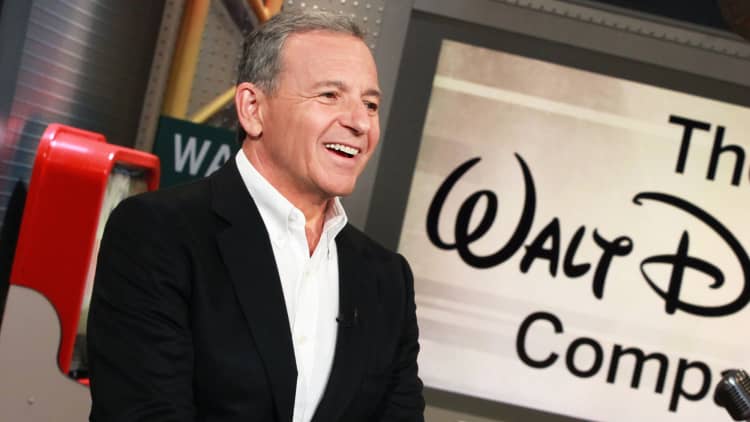The launch of Disney+ is less than a week away. On Tuesday, hundreds of movies and television shows from Disney's vault will appear on the streaming service — some for the first time in decades.
However, a number of Disney movies won't find a home on Disney+ for a while — or ever.
For the most part, the missing films, which include "Coco," "Ralph Breaks the Internet" and the live-action version of "Beauty and the Beast," aren't appearing on the platform on day one because of preexisting deals with other streaming services. Hulu, Netflix and even HBO currently house dozens of Disney titles.
Other films were co-produced with another studio, and there are rights issues that need to be navigated if Disney wants to bring them over to Disney+ — notably, Sony's two "Spider-Man" flicks that are connected to Marvel's Cinematic Universe.
Then there are films such as the new "The Lion King," "Maleficent: Mistress of Evil" and "Aladdin" that won't be on the service right away because they aren't yet available for home release. These will eventually be added to the catalog.
The final category encompasses any films that are too controversial or too antiquated to be shown on the streaming service. Namely, Disney's "Song of the South."
The half live-action, half cartoon film tells the story of Uncle Remus, a storyteller who tells the tale of a trickster rabbit, a villainous fox and a dim-witted bear to a young boy.
The film has been the subject of controversy since its 1946 release. Critics have described the film's portrayal of African Americans as racist and offensive, perpetuating stereotypes and utilizing a "black vernacular."
"Song of the South" was also criticized for seemingly glorifying the plantation system of the post-Civil War South. Because of this, Disney has never released the movie on any home video format in the U.S.
However, those who have ventured to Disney's theme parks may recognize Br'er Rabbit, Br'er Fox and Br'er Bear from the Splash Mountain ride. The film is also the source for the iconic song "Zip-a-Dee-Doo-Dah," which went on to win the Academy Award for best original song.
While "Song of the South" will not appear in any way on the streaming service, Disney is sanitizing several other films ahead of their release on Disney+.
The Jim Crow character from the original "Dumbo" will be edited out of the film version that appears on the streaming service. Also a post-credit "blooper" scene in "Toy Story 2" in which the prospector character Stinky Pete is interrupted while offering two Barbie dolls a role in the next "Toy Story" film — suggestively taking one of the Barbies' hands in his — will also be removed.
Additionally, the live-action "Lady and the Tramp" coming to Disney+ will reinvent the "Siamese Cat Song" with the help of singer and songwriter Janelle Monae.
"It shows Disney is taking the subject very seriously," Shawn Robbins, chief analyst at Boxoffice.com, said of Disney's decision to keep "Song of the South" off its platform and alter several of its movies.
Disney wasn't immediately available to comment.
WATCH: Disney CEO Bob Iger on Disney+, future of the industry



